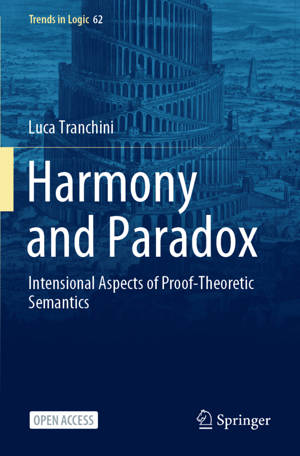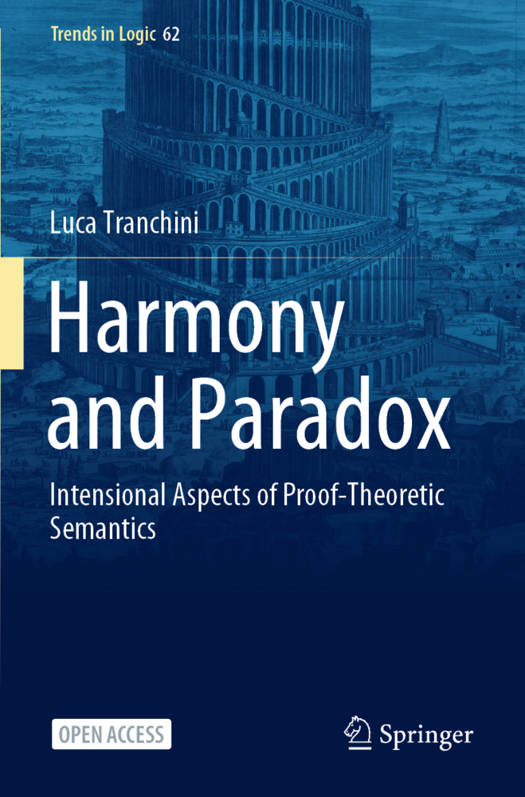
- Afhalen na 1 uur in een winkel met voorraad
- Gratis thuislevering in België vanaf € 30
- Ruim aanbod met 7 miljoen producten
- Afhalen na 1 uur in een winkel met voorraad
- Gratis thuislevering in België vanaf € 30
- Ruim aanbod met 7 miljoen producten
Zoeken
€ 42,45
+ 84 punten
Omschrijving
This open access book investigates the role played by identity of proofs in proof-theoretic semantics. It develops a conception of proof-theoretic semantics as primarily concerned with the relationship between proofs (understood as abstract entities) and derivations (the linguistic representations of proofs). It demonstrates that identity of proof is a key both to clarify some --still not wholly understood-- notions at the core of proof-theoretic semantics, such as harmony; and to broaden the range of the phenomena which can be analyzed using the tools of this semantic paradigm, so as to include for instance paradoxes.
The volume covers topics such as the philosophical significance of different criteria of identity of proofs, and adequacy conditions for an intensional account of the notion of harmony. The author also examines the Prawitz-Tennant analysis of paradoxes by investigating on the one hand the prospectsof turning it into a theory of meaning for paradoxical languages, and on the other hand two distinct kinds of phenomena, first observed by Crabbe and Ekman, showing that the Tennant-Prawitz criterion for paradoxicality overgenerates. This volume is of interest to scholars in formal and philosophical logic.
The volume covers topics such as the philosophical significance of different criteria of identity of proofs, and adequacy conditions for an intensional account of the notion of harmony. The author also examines the Prawitz-Tennant analysis of paradoxes by investigating on the one hand the prospectsof turning it into a theory of meaning for paradoxical languages, and on the other hand two distinct kinds of phenomena, first observed by Crabbe and Ekman, showing that the Tennant-Prawitz criterion for paradoxicality overgenerates. This volume is of interest to scholars in formal and philosophical logic.
Specificaties
Betrokkenen
- Auteur(s):
- Uitgeverij:
Inhoud
- Aantal bladzijden:
- 184
- Taal:
- Engels
- Reeks:
- Reeksnummer:
- nr. 62
Eigenschappen
- Productcode (EAN):
- 9783031469237
- Verschijningsdatum:
- 23/05/2024
- Uitvoering:
- Paperback
- Formaat:
- Trade paperback (VS)
- Afmetingen:
- 155 mm x 235 mm

Alleen bij Standaard Boekhandel
+ 84 punten op je klantenkaart van Standaard Boekhandel
Beoordelingen
We publiceren alleen reviews die voldoen aan de voorwaarden voor reviews. Bekijk onze voorwaarden voor reviews.











